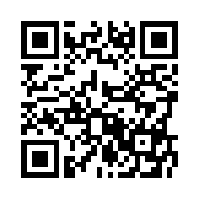Abstract
The contention that the Reformers, and especially Calvin, had little or no interest in mission is not new in church historiography. While many studies, conducted over years, have demonstrated the contrary, this groundless allegation continues to assert itself from time to time, for example as found in a recent best-seller by one of the world’s leading church historians. Given that 2009 marked the world-wide commemoration of Calvin’s birthday 500 years ago with the consequence of many studies published, it is appropriate to elucidate the question in a different manner: What theological motives are important in Calvin’s view of mission? This article examines the issue of the relationship between mission and Calvin with regard to the concept of mission, but also concerning some other theological questions.According to Calvin, every believer has a role to fulfill in evangelism. The ‘mission field’ is comprised of every nation, all peoples, the entire world. Calvin interprets the task of mission ecclesiologically: for him the church (as local congregation) is only church when it has a missionary orientation.Copyright information
- Ownership of copyright in terms of the Work remains with the authors.
- The authors retain the non-exclusive right to do anything they wish with the Work, provided attribution is given to the place and detail of original publication, as set out in the official citation of the Work published in the journal. The retained right specifically includes the right to post the Work on the authors’ or their institutions’ websites or institutional repositories.
Publication and user license
- The authors grant the title owner and the publisher an irrevocable license and first right and perpetual subsequent right to (a) publish, reproduce, distribute, display and store the Work in any form/medium, (b) to translate the Work into other languages, create adaptations, summaries or extracts of the Work or other derivative works based on the Work and exercise all of the rights set forth in (a) above in such translations, adaptations, summaries, extracts and derivative works, (c) to license others to do any or all of the above, and (d) to register the Digital Object Identifier (DOI) for the Definitive Work.
- The authors acknowledge and accept the user licence under which the Work will be published as set out in https://creativecommons.org/licenses/by/4.0/ (Creative Commons Attribution License South Africa)
- The undersigned warrant that they have the authority to license these publication rights and that no portion of the copyright to the Work has been assigned or licensed previously to any other party.
Disclaimer: The publisher, editors and title owner accept no responsibility for any statement made or opinion expressed by any other person in this Work. Consequently, they will not be liable for any loss or damage sustained by any reader as a result of his or her action upon any statement or opinion in this Work.
In cases where a manuscript is NOT accepted for publication by the editorial board, the portions of this agreement regarding the publishing licensing shall be null and void and the authors will be free to submit this manuscript to any other publication for first publication.
Our copyright policies are author-friendly and protect the rights of our authors and publishing partners.

